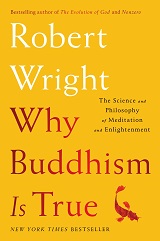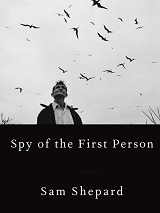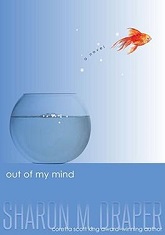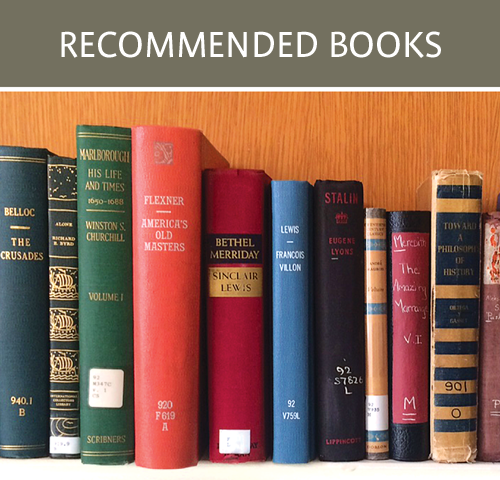What We Read in 2017
Lost City of the Monkey God | Douglas Preston
 Why Buddhism Is True: The Science and Philosophy of Meditation and Enlightenment | Robert Wright
Why Buddhism Is True: The Science and Philosophy of Meditation and Enlightenment | Robert Wright
Wright is the hard-headed cynic who brought his neuroscience cred to The Moral Animal, so you know he hasn’t fallen for anything without evidence. This book combines hangdog analysis of his own meditation efforts with reams of solid research into the Buddha’s instructions and their mental effects, debunking the woo-woo while magnifying genuine practicality and wonder. Chapter titles delightfully include “Like, Wow, Everything Is One (At Most).”
As a still-budding Sherlockian, I also spent a blissful week in Victorian pastiche with Nicholas Meyer’s geek-sharp The Seven-Per-Cent Solution and The West End Horror.
—Sara Holliday, Events Coordinator
Less | Andrew Sean Greer (ebook available)
Arthur Less needs to escape. The man he has fallen in love with is marrying someone else, and Arthur doesn’t want to be around for the wedding. To add insult to injury, he’s about to turn fifty. So he, a midlist novelist, agrees to accept any and all invitations to the various events such a writer gets invited to. Thus begins Arthur’s journey in Less by Andrew Sean Greer, though I’m sorry to report the humiliations will continue apace. Greer has managed something of a marvel here: the novel moves breezily between hilarious set pieces and Arthur’s memories, avoiding false notes and building a surprising poignancy. When this book came to me, I was looking for a remedy for the torrent of bad news that seemed to overwhelm much of 2017. Less is just such a tonic. Join our hero as he bawls through a Broadway show or accidently threatens a classroom of German students or rides a camel through the desert. You’ll be glad you did.
—Patrick Rayner, Acquisitions Assistant/Circulation Assistant
American Pastoral | Philip Roth (ebook also available)
The Land Breakers | John Ehle
—Steven McGuirl, Head of Acquisitions
The Spy of the First Person | Sam Shepard
In his final published work, Sam Shepard weaves together narratives of health and the winding-down activity of dying. His prose is concise and yet creates distortion and unclear lines as to who is speaking, feeling, thinking. The book’s desert scenery seems to shift with the narratives: Is the reader at the racetrack, or are they following a man taking his wife to and from a list of doctors? Are they escaping from Alcatraz? At times, the reader seems to be watching the decline of Shepard himself, as he moves out of and into the figure of an old man watching what lives and crawls on the front lawn. This slim lyrical work completes the literary legacy of Sam Shepard, who passed away of ALS in July of 2017.
is speaking, feeling, thinking. The book’s desert scenery seems to shift with the narratives: Is the reader at the racetrack, or are they following a man taking his wife to and from a list of doctors? Are they escaping from Alcatraz? At times, the reader seems to be watching the decline of Shepard himself, as he moves out of and into the figure of an old man watching what lives and crawls on the front lawn. This slim lyrical work completes the literary legacy of Sam Shepard, who passed away of ALS in July of 2017.
—Ashley-Luisa Santangelo, Bibliographic Assistant
The Go Between | L.P. Hartley (ebook and audiobook available)
L.P. Hartley’s The Go-Between is a coming of age story that traverses time, place, and gender. Set mostly in the English countryside in 1900 at the stately home of a friend of narrator Leo Colston, the reader is taken on the emotional ride of a thirteen-year-old who is committed to pleasing those around him and is thrust into turmoil when the desires of different individuals come into conflict. In the book’s prologue, an older Leo encounters an object infused with memory, and is thrown back in time, wondering how else events might have unfolded, and musing that “the past is a foreign country: they do things differently there.” Most of us will recognize this feeling and be affected by the beautiful writing and tragic ending of events. The Go Between was first published in 1953, and has been adapted several times for stage and screen, most notably as a 1971 film with Julie Christie, written by Harold Pinter and directed by Joseph Losey.
—Cathy McGowan, Circulation Librarian/Interlibrary loan
 Born a Crime | Trevor Noah
Born a Crime | Trevor Noah
Out of My Mind |Sharon Draper
In 2017, two books opened my eyes in unexpected ways. The first was Trevor Noah’s autobiography, Born a Crime, which chronicles his childhood in South Africa. While the comedian and host of The Daily Show certainly offers numerous humorous anecdotes, he also provides a sobering look at growing up during the apartheid regime and the after-effects following its dissolution. From the children’s collection, I read the engrossing Out of My Mind by Sharon Draper, a book that takes the reader into the experience of an incredibly intelligent eleven-year-old trapped inside a body afflicted by cerebral palsy. Melody scores a spot on the quiz team at her school and battles against many hurdles to prove she belongs there. Both of these titles broadened my worldview and I hope to continue to down this enlightening literary path in 2018.
—Susan Vincent Molinaro, Children’s and Young Adult Librarian
Atlas Obscura: An Explorer's Guide to the World's Hidden Wonders | Joshua Foer, Dylan Thuras & Ella Morton
As a fan of the Atlas Obscura website, I was thrilled to see a copy of Atlas Obscura: An Explorer’s Guide to the World’s Hidden Wonders in the Library lobby. Part travel guide, part exhibition catalog, it reads like a modern day cabinet of curiosities showcasing the fantastic, hidden, and overlooked. The book is full of architectural oddities, natural phenomena, and unusual art, documenting pieces of overlooked history that we might otherwise forget.You can flip any page and find something cool: grim anecdotes, coordinates in the middle of the ocean, metropolitan micro-guides, gorgeous photography, and special indexes with titles such as “Cold War Relics,” “Disembodied Body Parts,” and “Very Large Things.”
—Kate Marcus, Circulation Page

